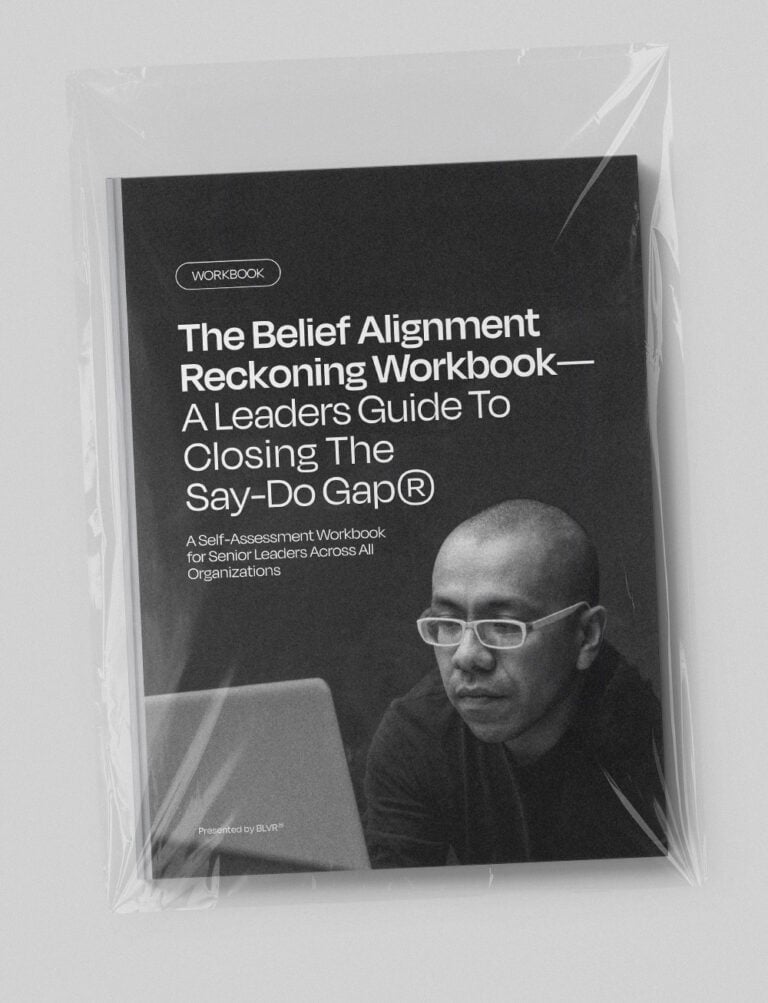
Business Branding / BY Scott Hancock
Authenticity is the New Currency: Why Consumers Are Abandoning Brands That Don’t Live Their Belief
Published On 11.19.2024
88% of consumers say authenticity is non-negotiable when deciding which brands to support. But here’s the uncomfortable reality: over half of today’s brands are failing to live up to their promises. According to the Edelman Trust Barometer, 57% of consumers believe most brands don’t deliver on what they claim to stand for.
In a world of radical transparency—where every action is scrutinized, and every inconsistency can be amplified in seconds—clever marketing isn’t enough. Authenticity is the new currency. If your brand’s actions don’t align with its core belief, you’re not just losing customers—you’re forfeiting the opportunity to create lasting loyalty and turn customers into advocates.
The Crisis of Authenticity: What Happens When Brands Don’t Walk Their Talk
Consumers today aren’t just buying products—they’re buying into brands. And they’re looking for brands whose beliefs align with their own. 64% of global consumers make purchasing decisions based on shared values with a brand (Edelman Earned Brand Study). They don’t want empty promises—they want brands that live their belief in every action.
The problem? Too many brands are failing to walk their talk. They claim to stand for sustainability, social responsibility, or customer-centricity, but their actions tell a different story. This gap between what brands say and what they do is the Say-Do Gap®—and it’s eroding trust and loyalty faster than ever.
Your customers aren’t passive observers. They’re watching and ready to call you out the second you slip. 86% of consumers say authenticity is key to choosing which brands they support (Stackla Consumer Content Report). But only 57% believe brands deliver on their promises. That gap? It could cost your brand everything.
Why Authenticity Creates Loyal Customers—and Movements
In today’s marketplace, trust isn’t something you buy—it’s something you earn. And it’s earned through consistent, authentic behavior. The brands that live their belief—those that don’t just say what they stand for but show it through every action—are the ones building communities of loyal advocates.
When a brand consistently lives its belief, it’s not just a company anymore. It becomes a movement that people want to join and champion. Brands that create this level of loyalty attract customers who don’t just buy products—they buy into the brand’s mission, values, and impact.
Patagonia: A Brand That Leads by Example
Consider Patagonia, a brand that doesn’t just market its belief in environmental conservation but makes it the backbone of their entire business. Their “Don’t Buy This Jacket” campaign was a clear example of their commitment to reducing environmental impact by encouraging consumers to rethink unnecessary purchases. This was not just a clever campaign but a radical move that aligned directly with Patagonia’s core belief in sustainability.
This authenticity has earned Patagonia more than customer loyalty. It’s built a community of advocates who share and support their mission to protect the planet. Their customers don’t just buy jackets—they support a cause. They’re willing to pay a premium because they trust the brand to uphold its values consistently.
How to Build Loyalty Through Authenticity
Here’s the brutal truth: You can’t fake authenticity. If you talk about your belief but don’t live it, your customers will see right through you—and the damage to your reputation will be hard to recover from. To build trust and loyalty, your brand must close the Say-Do Gap® and align every action with its belief. Here’s how to start:
Step 1: Be Relentlessly Honest About Your Belief
Your belief isn’t just a marketing message—it’s your brand’s reason for existing. Take a hard look at it. Is this truly what you stand for? And more importantly—are you living it? If not, you need to either change your behavior or redefine your belief.
Authenticity requires radical honesty, and today’s consumers demand nothing less.
Step 2: Live Your Belief Consistently Across Every Touchpoint
Consumers don’t care about isolated acts of goodness—they care about consistency. Your belief must show up everywhere: in how you treat employees, source products, engage with customers, and make decisions at the leadership level. Authenticity means being consistent in everything you do, no matter how small the interaction.
Example to Follow: TOMS Shoes doesn’t just promote a commitment to social impact—they live it through their one-for-one giving model, reflecting their belief in positive social change across every part of the organization. This model shows customers that TOMS doesn’t just say they care—they take tangible action to support that care.
Step 3: Communicate Your Wins—But Be Transparent About Your Shortcomings
Nobody expects perfection, but they do expect transparency. Be honest about your challenges and open about your efforts to improve. Patagonia doesn’t pretend to be flawless—they openly discuss the environmental impact of their products and what they’re doing to improve.
This kind of radical transparency is why their customers trust them. They see the effort, not just the results.
The Transformative Power of Closing the Say-Do Gap®
Here’s the good news: Authenticity pays off. When your brand consistently lives its belief, you build trust. That trust turns into loyalty. That loyalty turns into advocacy. Customers who believe in your brand don’t just buy from you—they champion you. They defend your brand when it’s attacked. They stick with you even when competitors come knocking with lower prices.
And it’s not just about customers. Authenticity inspires employees to engage more deeply with their work. Investors are more likely to back brands that live their belief, knowing that consistency builds long-term value.
Closing the Say-Do Gap® isn’t easy—but it’s the only way to build a brand that lasts. The brands that live their belief create lasting, meaningful connections with their customers, employees, and stakeholders. And in today’s world, that’s the only way to thrive.
Conclusion: Authenticity is the Future of Branding
Authenticity is the new currency, and consumers are holding brands to a higher standard than ever before. They don’t want to hear what you believe—they want to see it in action. Brands that fail to live their belief will lose trust, loyalty, and relevance.
The time for half-hearted promises is over. Consumers are abandoning brands that don’t walk their talk. The brands that will thrive are those that close the Say-Do Gap® and lead with authenticity.
Want to build lasting trust and loyalty? Live your conviction—every single day.
IS YOUR BRAND BUILT ON CONVICTION OR CONVENIENCE?
Most brands talk about purpose.
Few are willing to pay the price for it.
This 45-minute assessment will reveal the hidden contradictions costing you customer trust, team alignment, and market authenticity. Discover where your beliefs and actions diverge—and get the practical framework to close the gap that’s holding your brand back.

About the Author

Scott Hancock
Partner / CEO
Scott Hancock is a thought leader in belief-driven branding and an expert in closing the Say-Do Gap®—the critical divide between what brands say and what they actually do. As CEO of BLVR®, Scott has pioneered a belief-led approach that helps organizations transform their core conviction into bold actions that inspire trust, loyalty, and market leadership.
With a reputation for pushing brands to go beyond surface-level promises, Scott’s work has been recognized by AdWeek, Forbes, and Fast Company for its fearless creativity and impactful results. His leadership has empowered BLVR® to become a trusted partner for purpose-driven brands seeking to align their actions with their core belief and create lasting change.




